Like ships passing in the night, Birt Slater and Herb Meyer were headed in the opposite direction, but their coaching paths were virtually identical.
Slater confirmed his retirement as head coach at Kearny following the Komets’ 39-28 loss in the San Diego Section championship game to Meyer’s first year, front-loaded El Camino squad at San Diego Stadium.
Each had become a head coach in 1959, Slater after an outstanding run as assistant coach and head track coach at San Diego, and Meyer at Oceanside, the school for which he played.
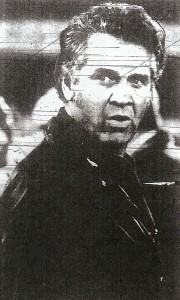
Slater finished his career with 134 victories (against 41 losses and nine ties), second in County history only to the 140 wins of Escondido’s Bob Chick Embrey.
Meyer’s championship was victory No. 125 (against 44 losses and six ties), but he was not even halfway through his career, which would conclude more than a quarter-century later with a probably-never-equaled 339 triumphs.
Slater and Meyer were neck and neck in other areas of coaching achievement. Birt’s won-loss percentage was .753 and Herb’s .731.
The championship was Meyer’s fourth (two in the small schools division) and Slater won three. Both coaches had made five title-game appearances.
Kearny was a slight favorite over the Wildcats, who numbered Meyer plus 17 lettermen who went to the new school after leading the Oceanside team that defeated Granite Hills for the 1975 title.
Seldom has a first-year entry gotten such an infusion of veteran, high-class talent.
DOKIE DOES IT
One of those who followed Meyer to the eastside campus was Darryl (Dokie) Williams, a brilliant football and track performer who would play at UCLA and in the NFL and who provided the scoring difference in the game with kickoff touchdown returns of 92 and 89 yards.
“They came right at us at the most opportune times,” Slater told Henry Wesch of The San Diego Union. “It’s always a mistake when they run one back on you, but they were great runs. I don’t ever remember anyone running back two like that on us.”
Slater, emotional and mercurial at times, was classy and understated when it was over. “I’ve had a good career and this was a good ball game,” he said. “I think everybody got their three dollars worth.”
Kearny had an advantage of 434 yards to 266 in rushing and receiving, but the Komets had 132 yards in penalties and four turnovers.
El Camino had zero turnovers and also profited from the heavyweight thrusts of 205-pound Toussaint (Tootie) Tyler, who had 190 yards rushing in 32 attempts and scored two touchdowns.
NEW TIE-BREAKER TESTED
“History-making events are supposed to be heralded with sounding trumpets and helium-filled balloons,” wrote Steve Brand of The San Diego Union.
But the writer noted that a 6-6, semifinals playoff tie between Morse and El Camino resulted in “disappointment and confusion,” all because of new tie-breaking rules.
Brand, on a morning newspaper deadline, was not a happy camper when he described what happened following the regulation-time deadlock:
“A twenty-minute discussion between officials, coaches, players, and statisticians over first downs, penetrations inside the 20-yard line, and a mysterious stopping of the clock just before the game ended.”
The teams tied with 7 first downs each and both had made two penetrations inside their opponent’s 20-yard line. Those represented the first two elements of the new “California Tie-Breaker” system.
Play resumed when the third tie-breaker kicked in. Each team was given four plays from the 50-yard line. Morse lost the coin toss and had first possession.
The Tigers had a net of minus two yards after four plays that included a 15-yard penalty. El Camino took over and essentially fell on the ball four consecutive plays, according to Brand.
The Wildcats were declared winners but the game went into the books as a tie.
The game was played at Vista, a technically neutral site, but the the clock “inadvertantly” stopped as regulation time was running out and El Camino close to what would be an eighth and tie-breaking first down.
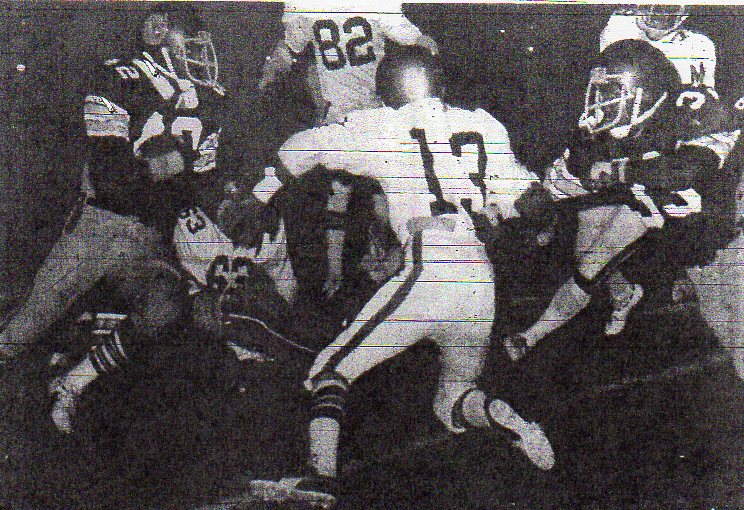
SLIPS THEM A MICKEY
El Camino quarterback Mickey PaoPao, the last in a long line of seven athletic PaoPao brothers, was a 15-tackle warrior on defense and “made like the cavalry” on offense.
PaoPao came on at quarterback late in the third quarter and directed his team to its first five first downs and a touchdown to tie the game.
PaoPao later pushed the Wildcats to two more first downs and a inside-the-20 penetration which set up the overtime.
PaoPao also wedged two yards for a first down on a quick count, but game officials ruled time had run out before the snap, this after officials re-started the mysteriously stopped clock.
Yes, it was confusing and still is, but Brand made his deadline.
MASSIVE RELEAGUING
Dissolution of the Coast League after three years triggered changes in leagues, conference models, and playoff systems.
The six County leagues in the San Diego Section each became part of its own conference, moving away from the “City” and “County” format.
The Avocado League became the 14-member Avocado Conference and was split into Avocado East and Avocado West.
The Grossmont, Southern, and Metropolitan each had a conference designation and the Eastern and Western leagues were representative of the City Conference.
Schools from the unwieldy, nine-team Coast scattered to new locations. Larger schools in the city affiliated with the Eastern League. The schools of less enrollment moved to the Western.
After and before:
| Team 1976 League 1975 League | ||
| Lincoln | Western | Eastern |
| Hoover | Western | Eastern |
| La Jolla | Western | Coast |
| Mission Bay | Western | Coast |
| St. Augustine | Western | Eastern |
| Madison | Eastern | Western |
| Kearny | Eastern | Western |
| Point Loma | Western | Eastern |
| Crawford | Eastern | Coast |
| Coronado | Metropolitan | Coast |
| Mt. Carmel | Avocado East | Coast |
| Poway | Avocado East | Coast |
| Torrey Pines | Avocado West | Coast |
| Ramona | Avocado East | Coast |
| San Dieguito | Avocado West | Coast |
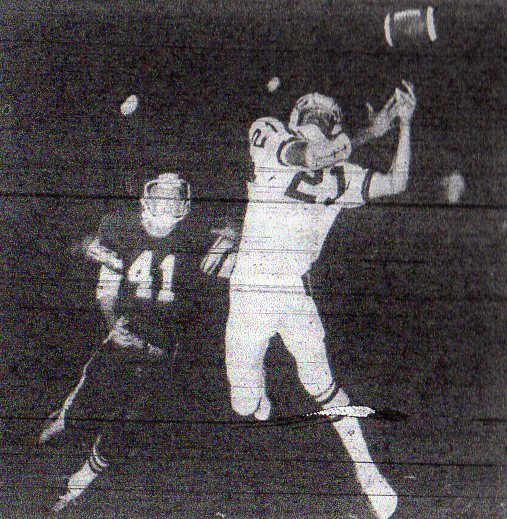
RISING STAR
Lincoln was a year away, but the Hornets and free safety-quarterback Marcus Allen were coming on.
Coach Vic Player’s squad was eliminated by Morse in the first round of the playoffs, but Allen, a 6-foot, 2-inch, 190-pound junior, was the Western League’s back of the year and all-San Diego Section first-team as a defensive player.
The license plates on Vista coach Dick Haines’ car said “CIF 74” in honor of the Panthers championship that year, but Haines changed the plates to “Win CIF” this year.
ANOTHER PAPER ERROR
The Evening Tribune on Nov. 2, under the byline of Jerry (Sigmund) Froide, revealed that Chula Vista was forfeiting four victories for use of a scholastically ineligible player.
This latest instance of the historically ever-present “Dreaded Administrative Glitch” was one of the more impacting in San Diego Section history.
Chula Vista would be 9-0 on the field and an expected playoff presence, but was legislatively reduced to 5-4 and out of the postseason.
Thousands of words filled the sports pages for the next two weeks as coach Bob Korzep’s team ran the gamut of emotions.
General timeline of events:
—The player was scholastically ineligible the previous spring at another school.
—His academic status not changed, the player remained ineligible when enrolling in the fall at Chula Vista. He turned out for football.
—The ineligibility went unnoticed by Chula Vista administrators until after the fifth game.
—Chula Vista self-reported the oversight to CIF commissioner Kendall (Spider) Webb and sought a hardship waiver.
—Webb agreed that there was a hardship and granted a waiver for the upcoming playoffs, but not retroactively.
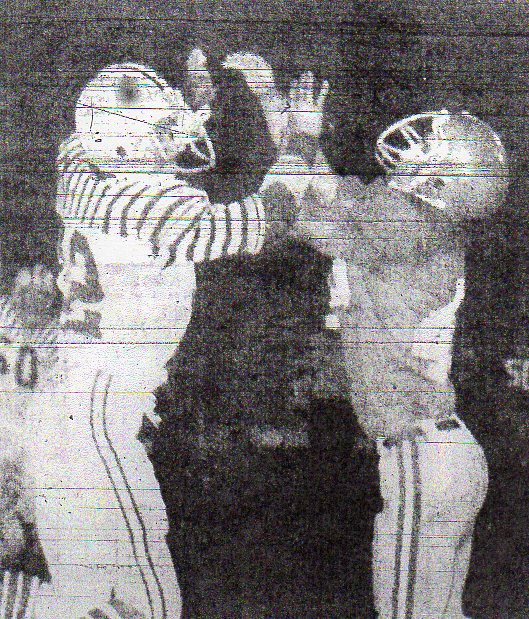
HONCHOS LOWER HAMMER
—Webb pointed out that the CIF could impose forfeitures only in playoff situations, essentially lateraling the matter to league principals.
—Metro bosses, meeting for two hours at Hilltop High, announced that the Spartans would forfeit the four games in which the ineligible player participated.
—The decision was by majority vote, announced league president Dale Newell, principal at Mar Vista.
— Chula Vista parents, booster club members, and community supporters hired a lawyer.
—Attorney Donald McGrath won a temporary restraining order from Superior Court judge Eli Levinson after a 10-minute meeting, essentially putting Chula Vista back in the playoffs.
“We’re basing our case on the idea that there can be no penalty without a crime, and there is no rule in the Metro League calling for such penalties,” said McGrath.
Using his best metaphor, McGrath argued that “if you’re going to throw a flag you’d better have a penalty.”
—The San Diego section board of managers, the final educational stop in Chula Vista’s appeal process, voted in favor of the league and CIF.
—Chula Vista’s last chance now rested with the court.
—Finally, on Nov. 18, Superior Court judge Jack R. Levitt heard four hours of testimony and, citing numerous issues, dissolved the temporary restraining order against the Metro League and CIF, thus ruling against the team and ending its season one day before the playoffs began.
PLAYOFF GREETING
El Camino players were surprised to see a chalked message in front of their bench when the team arrived at Vista for a quarterfinals playoff against Granite Hills:
“Good luck, E.C. See you in San Diego Stadium. Love, Vista.”
The Wildcats made it to the big stadium, but Vista was knocked out in the semifinals by Kearny, 33-16.
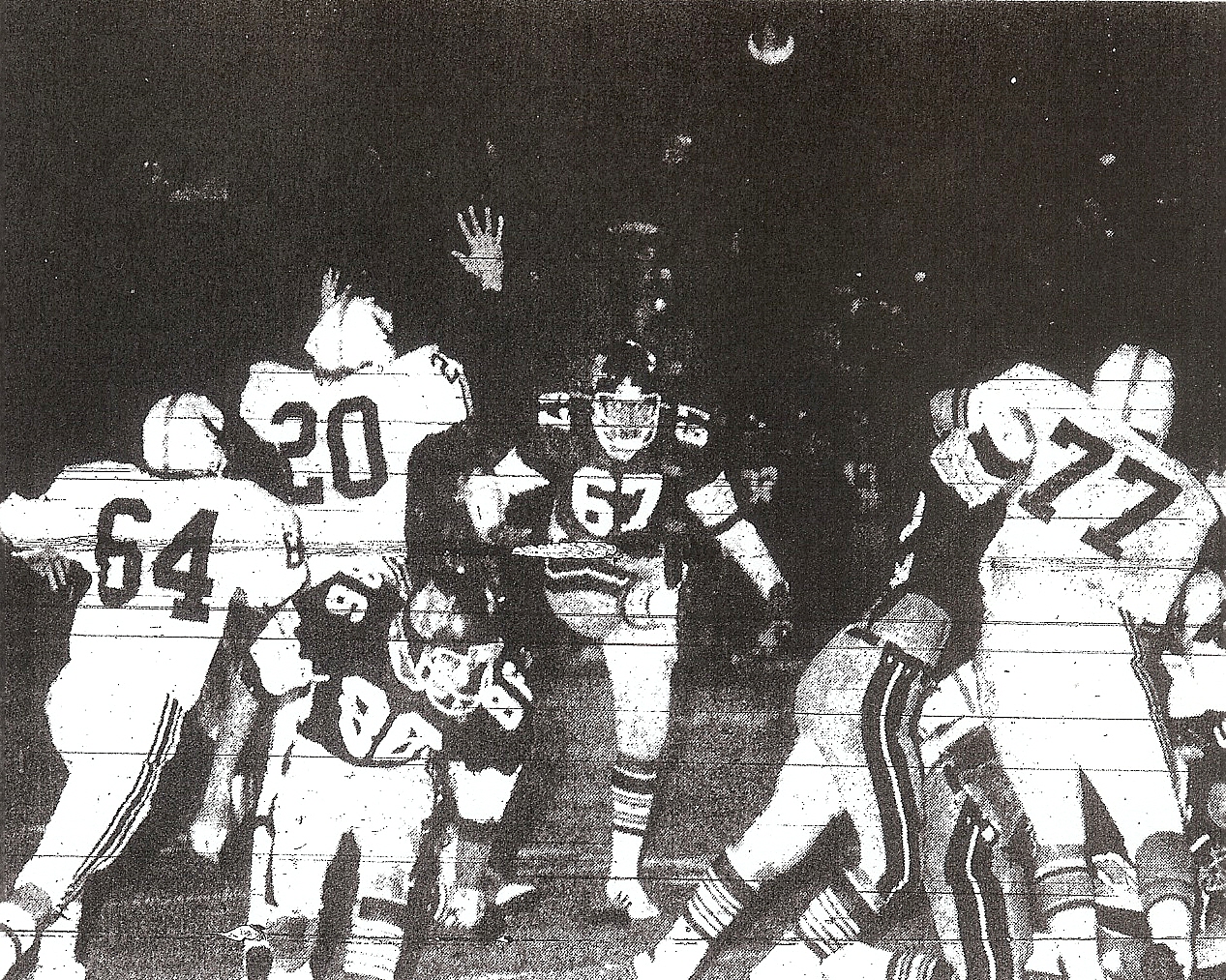
DOORS OPEN AGAIN
Mira Mesa and Serra made it five new schools in the last two years. They joined 1975 newcomers Mt. Carmel, Valhalla, and Southwest.
Coach Brad Griffith’s Marauders defeated Don Wadsworth’s Conquistadors, 22-0, in the junior varsity “Super Bowl.” Mira Mesa finished with a 9-0 record and Serra 7-2.
Griffith and Wadsworth each had been assistants under Slater, as had Birt’s successor at Kearny, Tom Barnett.
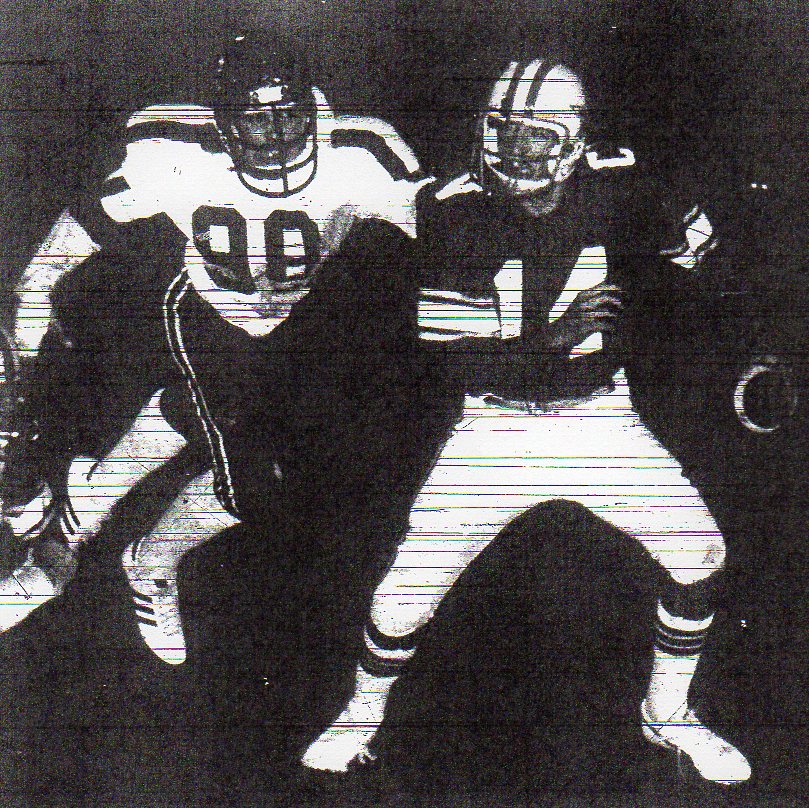
STARTUP FALSE STARTS
Equipment was an issue at the new schools.
Serra ordered 120 mouthpieces but none had arrived by time of the first practice. El Camino did not receive its full complement of helmets. Mira Mesa didn’t have belts for its practice pants.
There were no rest room facilities at Mira Mesa and Serra and helmets were a problem even after they arrived.
“We guessed on a few sizes,” said El Camino’s Herb Meyer. “We guessed wrong on a few.”
Brad Griffith noted that “you might have a small player, but that doesn’t mean he has a small head.”
WHAT’S IN A NAME?
It wasn’t always El Camino High.
Bill Finley of the Evening Tribune wrote in December, 1975, following conclusion of the football season, that Herb Meyer would be the football coach and athletic director on the “Oceanside East” campus the following spring, before the new school opened its doors.
Chuck Hall, Meyer’s longtime assistant, would become head coach at “Oceanside West” on the campus of the original Oceanside High.
Juniors would have their choice of which school to attend (many followed Meyer), wrote Finley. Freshmen and sophomores would abide by the new school boundaries.
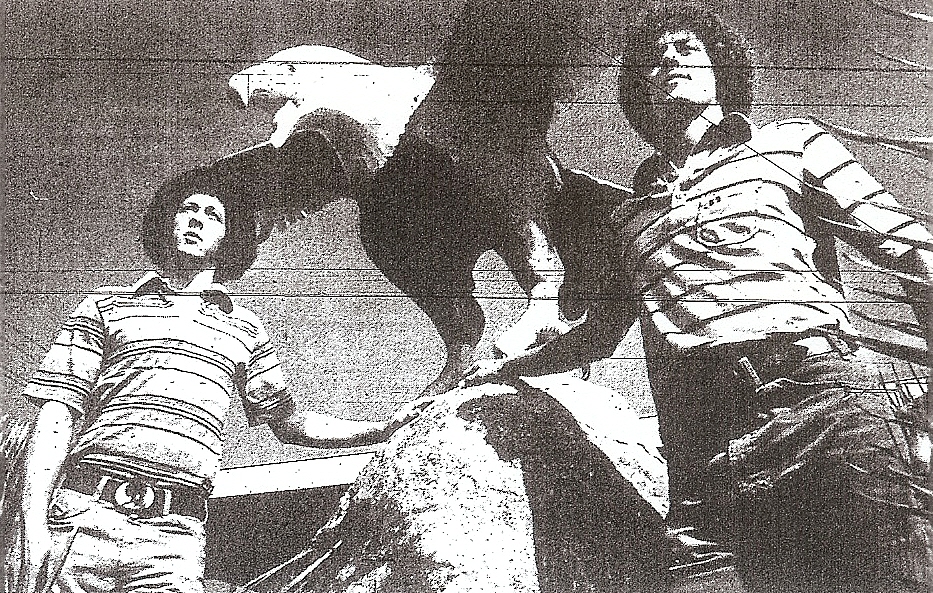
THEY SAID IT
“We’ll handle Morse like a JV team would a Pop Warner club. We’re stopping Eddie Ford. We put out Henry and Morse is next. They’ve never seen a defense like ours.” Kearny’s Ronnie Person, whose words backfired when Morse scored a 12-7 victory over the Komets.
“This is our Alamo.” Montgomery coach Jay Mack before the Aztecs faced Chula Vista, which won Metropolitan League showdown, 28-16.
MAKES A POINT
On the field, Southwest’s first-year varsity was winless in nine games and did not score a point while giving up 411. But Chula Vista forfeited a 76-0 victory over the Raiders. The game went into the books as a 1-0 Southwest victory.
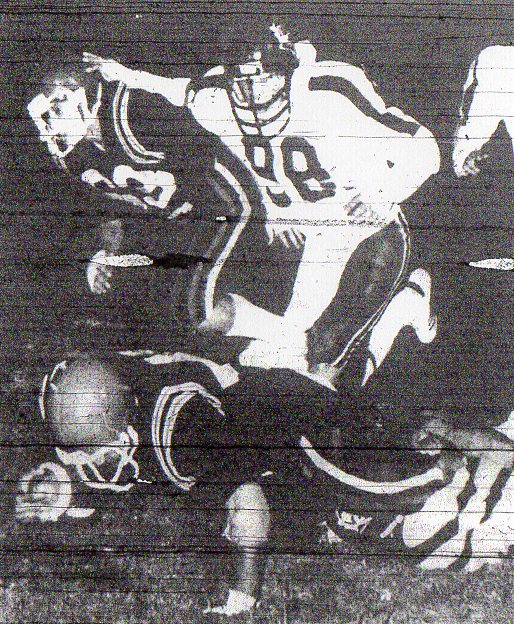
THUNDER IN THE LAGUNAS
Fifteen seconds into the first game and Mountain Empire coach Bill Prince knew his team was special.
“We threw about a 70-yard touchdown pass to Ed Jones to get going and we’ve been going ever since,” said Prince.
A 28-6 victory over Christian in the 1-A championship game capped the Campo school’s first unbeaten season at 8-0, bettering the back-to-back, 7-2 campaigns of 1965 and ’66.
AND ANOTHER 15 YARDS
Santana coach Joe DiTomaso was penalized six times for unsportsmanlike conduct, at which point the game against Helix, with Santana trailing, 21-0, with three minutes remaining, was called by referee Pat Sweeney.
“I was yelling at my team and I think he thought I was yelling at him,” said DiTomaso. “Then when we got the interference call, I called timeout, which is my right, to get an interpretation. I sent my captain out to talk to him and he refused.”
The rule book, reported Steve Brand, revealed that Sweeney was not required to explain the foul because pass interference was a judgment call and not subject to “misapplication or misinterpretation.”
DiTomaso got into Sweeney’s face coming off field and claimed he was bumped. Observers said DiTomaso bumped Sweeney, a 25-year veteran flag thrower and president of the local association.
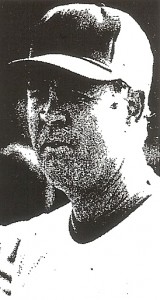
QUICK KICKS
El Camino’s Toussaint Tyler was headed to the University of Washington and then to the New Orleans Saints in the ninth round of the 1981 NFL draft…Tyler, who played two seasons in the NFL, was a first-team choice on the Parade Magazine All-America team, which was announced the week of the El Camino-Kearny final…Birt Slater wasn’t the only coach to step down…Shan Deniston resigned at San Diego and Garry Morgan quit at San Dieguito…after his team was penalized 190 yards in one game, Deniston said to Steve Brand of The San Diego Union, “We probably deserved a lot more, but I think they (game officials) felt sorry for us”…students chose “Marauders” as the school mascot for Mira Mesa…other considerations were Jaguars, Bobcats, Mavericks, and Sidewinders…Dokie Williams led El Camino to a state track title in Bakersfield in 1978, scoring in the 100-meter dash and winning the long and triple jumps…September heat was at its most intense…the temperature was 106 degrees when El Cajon Valley turned out for coach Jim Mann…the thermometer reached 103 at Morse…new CIF commissioner Kendall (Spider) Webb, who replaced the retiring Don Clarkson, planned to visit all 56 schools playing football and had been to 29 by the time practice started….

Another awesome article, Rick. That quote from Coach Griffith about MMHS’s helmet order-placement is hilarious!
Brad always has had a wry sense of humor.